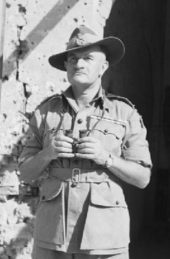In 1956 a military biography became a publishing sensation in the United Kingdom with the first edition of 20,000 selling out almost immediately. This was unusual, as only nine years after the war the public appetite for books on the recent war remained limited. It was even more unusual given that Defeat into Victory was written by a general in the Indian Army, Bill Slim, who had been largely unknown to the British public during the war, commanding the 14th Army in far-off India and Burma. Since the end of the war, however, his exploits had become much better known, he had become the Chief of the Imperial General Staff after Montgomery in 1948 (the only ‘Sepoy General’ ever to do so) and was, at the time of publication, governor general of Australia. The book was instantly regarded as a classic memoir of high command. Major General. D. R. Bateman wrote in The Field: ‘Of all the world’s greatest records of war and military adventure, this story must surely take its place among the greatest. It is told with a wealth of human understanding, a gift of vivid description, and a revelation of the indomitable spirit of the fighting man that can seldom have been equalled – let alone surpassed – in military history’. George Thompson in the London Evening Standard was as effusive in his praise: ‘He has written the best general’s book of World War II. Nobody who reads his account of the war, meticulously honest yet deeply moving, will doubt that here is a soldier of stature and a man among men.’ Those who have read the book will undoubtedly concur.
When it was published in the United States in 1961 it received similar reviews. The Journal of Modern History in 1963 considered it a work of ‘wisdom, modesty, grace, and deep understanding’, and ‘an outstanding example of the best of British military memoirs’. The author John Masters, who served in the 14th Army, wrote in the New York Times on 19 November 1961 that it was ‘a dramatic story with one principal character and several hundred subordinate characters,’ arguing that Slim was ‘an expert soldier and an expert writer.’ The book remains a best seller today.
What remains surprising, perhaps, is how little has been written about Slim. Only a fraction of what has been written about other generals, some of whom were less capable commanders but more astute self-publicists, has been published about him. My own book, Slim, Master of War, published in 2004, was only the fourth book exclusively to consider the command and leadership attributes of the man who led the largest ever British Army during the Second World War and who was responsible for two of Japan’s greatest ever military defeats on land. The first to do so was Geoffrey Evans’ Slim as Military Commander (Batsford, 1969), followed by Michael Calvert’s thin volume entitled, merely, Slim (Ballantine, 1973). This was then followed by Ronald Lewin’s superb biography, Slim, The Standard Bearer (Leo Cooper, 1976), which won the W.H. Smith Literary Award that same year. My book evaluated Slim’s generalship and argued that it formed the basis for a modern, innovative approach to warfighting. This argument was developed in The Generals (Constable, 2008). An important new analysis of Allied higher command in the war in the Far East can be found in Frank McLynn’s The Burma Campaign (Bodley Head, 2010) and Russell Miller published his biography in 2010..
What Defeat into Victory revealed was that Slim was also a consummate master of words. As a young officer he had augmented his meagre salary by writing short stories for Blackwoods magazine under the pseudonym of ‘John Mills’. In 1959 he published his second book, Unofficial History, which bears out in full Masters’ description of Slim as a superb writer. It was a deeply personal, honest though light hearted account of events during his service in locations and at times missed by the history books. It received widespread acclaim. The Canadian author and biographer John Connell described it as ‘for the most part uproarious fun. If Bill Slim hadn’t been a first-rate soldier, what a short story writer he might have made.’ For its part The National Review wrote: ‘One of the most significant aspects of Field Marshal Slim’s book is the affectionate respect he shows when he writes about British and Indian soldiers. He finds plenty to amuse him too. I doubt whether a kindlier or truer description of the contemporary soldier has been given anywhere than in Unofficial History… It is one of the most delightful and amusing books about modern campaigning I have ever read.’
Robert Lyman is the author, amongst others, of Slim, Master of War (Constable, 2004), The Generals (Constable, 2008) and Japan’s Last Bid for Victory: the Invasion of India, 1944 (Praetorian Press, 2011). His A War of Empires is being published by Osprey in November 2021.






